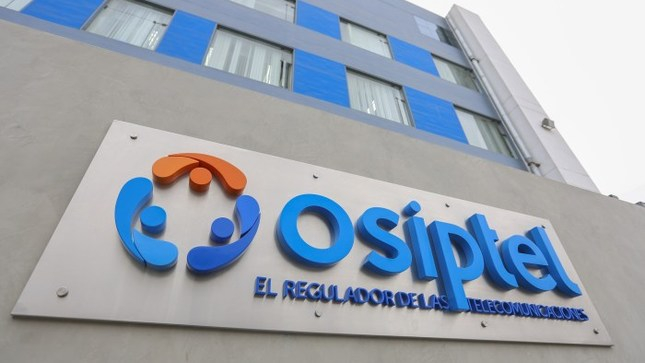
He Supervisory Agency for Private Investment in Telecommunications (Osiptel) He asked to extend the limit of the fines corresponding to his sector, in order to modify the conduct of infringing companies for the benefit of users.
Through a statement, Osiptel denounced that the fines it imposes are not always proportional to the impact of the infractions committed by the telecommunications operators, because “it has the lowest fine limit compared to other regulatory and supervisory bodies.”
The sanction limit established by law for Osiptel is 350 tax units (UIT), equivalent to S/1.7 million (according to the UIT value for the year 2023), which is much lower than that of the Tax Agency. Environmental Evaluation and Inspection (OEFA) of 5,000 UIT (S/24.7 million), or that of the Supervisory Agency for Investment in Energy and Mining (Osinergmin), which is 3,000 UIT (S/14.8 million).
It is also less than the limits of the Supervisory Agency for Investment in Transport Infrastructure for Public Use (Ositran), of 900 UIT and that of the National Superintendence of Sanitation Services (Sunass), of 500 UIT.
“Osiptel’s scale of fines was established by law more than 20 years ago, so it does not respond to the changes and evolution of the telecommunications market,” said the executive president of the institution, Rafael Muente Schwarz.
For example, when companies allow mobile devices with IMEI reported as stolen or lost to continue working, this infraction, due to its impact, should have a fine of more than 1,000 UIT, but the existing legal limit makes Osiptel impose a sanction of 350 ITU.
Osiptel: historical fines are not dissuasive
Muente pointed out that the fines seek to correct the behavior of the companies so that they comply with the regulations and provide a quality service to users. “This is distorted when the fine is less than the benefit obtained by the company by committing an infraction. A higher fine would have a deterrent effect, ”he pointed out.
If the amounts of fines imposed from 1996 to 2022 are considered, these have only represented 0.09% of the amount of operating income of companies in the sector registered in said period.
“This means that, with the current limits, the fines do not motivate the modification of the behavior of the companies, since their income is not affected and, on the contrary, they repeat the offense,” he explained.
According to information from the Osiptel Control Statistics Information Portal, the fines imposed on the operating companies (declared firm) in 2020 totaled S/111.86 million, in 2021 they reached S/101.79 million, while in 2022, they were S/85.76 million.
The data
It is important to point out that the imposition of fines does not pursue higher income for Osiptel, since the resources obtained from the fines imposed on the operating companies are destined to the fund of the National Telecommunications Program (Pronatel), an organization that promotes the access and use of the essential public telecommunications services for rural populations, attached to the Ministry of Transport and Communications (MTC).
Source: Larepublica
Alia is a professional author and journalist, working at 247 news agency. She writes on various topics from economy news to general interest pieces, providing readers with relevant and informative content. With years of experience, she brings a unique perspective and in-depth analysis to her work.












